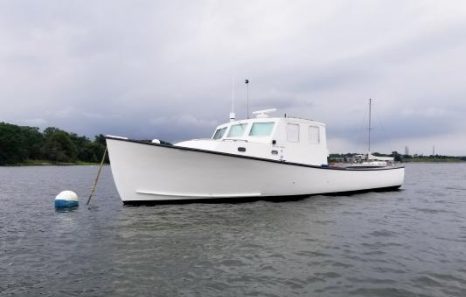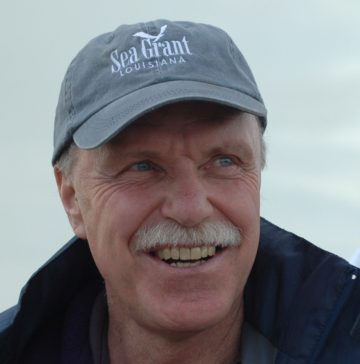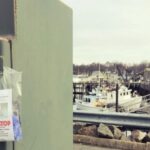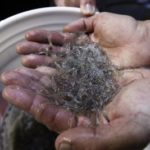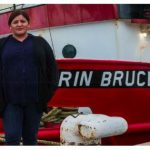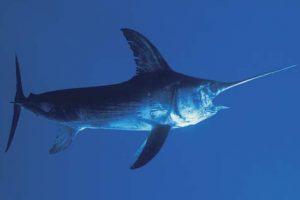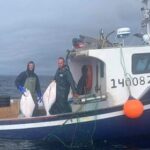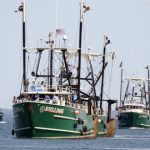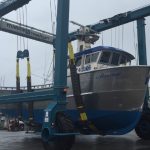Monthly Archives: October 2017
Athearn Marine Agency Boat of the Week: Solid Fiberglass 42′ Cape Dory Split Wheelhouse Lobster Boat, 500HP Lugger
Specifications, information and 23 photos click here To see all the boats in this series, Click here 10:38
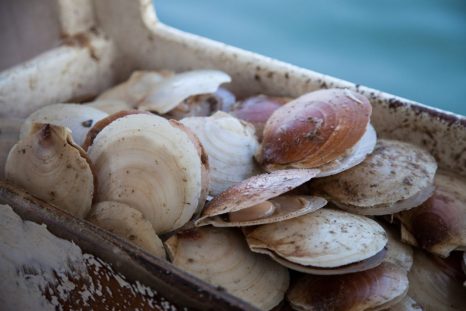
Eat local seafood to celebrate National Seafood Month
If I could only eat seafood, I would be quite happy. I’ve tried everything from jellyfish to cuttlefish, in addition to all the varieties of actual fish. So, I like the month of October, as it is National Seafood Month. National Seafood Month is a celebration of all kinds of delights that we harvest from the sea. It simultaneously celebrates the health of our oceans, a necessity to provide harvestable products, as well as our connection to our oceans through those who harvest its food and bring it to market and to our tables. click here to read the story 10:06
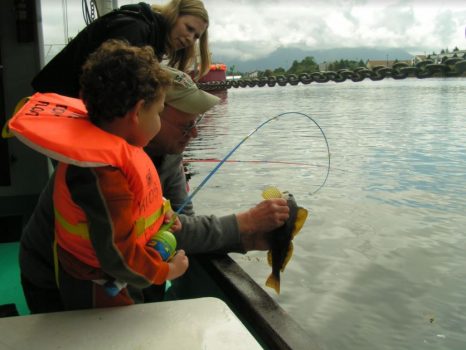
Scaling back hatchery salmon could mean huge losses for fleet
Salmon hatcheries play a huge role in Alaska’s fishing industry. But what effect are all those hatchery salmon having on Alaska’s wild stocks, which are even more valuable? In Part 1 of this 2-part series, KCAW’s Stephanie Fischer looked at the Wild Hatchery Interaction Study, an 11-year project researching the genetic consequences of hatchery salmon straying into wild streams and cross-breeding with wild stocks. In this story, Fischer examines the economic consequences on the industry, should Alaska ever have to scale back its hatchery programs. click here to read the story 08:25
Enviro groups threaten Canadian snow crab imports over whale deaths
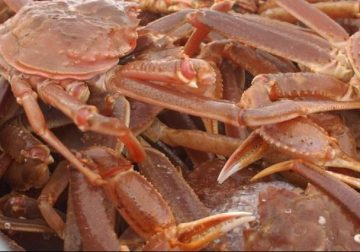 An alliance of U.S. environmental groups is preparing to ask Washington to ban imports of Canadian snow crab unless Ottawa steps up its efforts to save the endangered Atlantic right whales. Kristen Monsell, a senior attorney at the Center for Biological Diversity, said a provision of the United States Fishermen’s Protection Act allows the White House to ban imports of fish or seafood from a country if that catch is affecting conservation efforts of an endangered species. Monsell said snow crab is the target, because Canada has no mandatory regulations in place for snow grab gear or lines that could help keep whales from getting caught in them and Canada itself. click here to read the story 07:47
An alliance of U.S. environmental groups is preparing to ask Washington to ban imports of Canadian snow crab unless Ottawa steps up its efforts to save the endangered Atlantic right whales. Kristen Monsell, a senior attorney at the Center for Biological Diversity, said a provision of the United States Fishermen’s Protection Act allows the White House to ban imports of fish or seafood from a country if that catch is affecting conservation efforts of an endangered species. Monsell said snow crab is the target, because Canada has no mandatory regulations in place for snow grab gear or lines that could help keep whales from getting caught in them and Canada itself. click here to read the story 07:47
Commercial Spiny Lobster Fishery Closed at Anacapa Island and the East End of Santa Cruz Island Due to Public Health Hazard
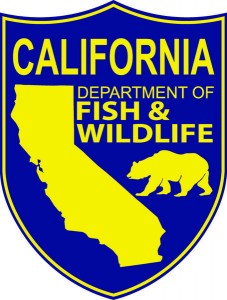 California Department of Fish and Wildlife (CDFW) Director Charlton H. Bonham has enacted a commercial spiny lobster fishery closure effective immediately. State health agencies determined that spiny lobster near Anacapa Island, Ventura County and the east end of Santa Cruz Island, Santa Barbara County had unhealthy levels of domoic acid and recommended closure of the commercial fishery. The recreational fishery for spiny lobster remains open statewide with a warning from the California Department of Public Health (CDPH) to recreational anglers to avoid consuming the viscera (tomalley) of spiny lobster. click here to read the story 21:30
California Department of Fish and Wildlife (CDFW) Director Charlton H. Bonham has enacted a commercial spiny lobster fishery closure effective immediately. State health agencies determined that spiny lobster near Anacapa Island, Ventura County and the east end of Santa Cruz Island, Santa Barbara County had unhealthy levels of domoic acid and recommended closure of the commercial fishery. The recreational fishery for spiny lobster remains open statewide with a warning from the California Department of Public Health (CDPH) to recreational anglers to avoid consuming the viscera (tomalley) of spiny lobster. click here to read the story 21:30
Record high prices, strong demand for Canadian snow crab bodes well for Alaska
 The top executives of Royal Greenland and Ocean Choice International (OCI) noted demand has remained strong for Canadian snow crab in 2017, despite record-high prices caused by reduced supply from the Newfoundland and Labrador fishery. In April, Canada’s Department of Fisheries and Oceans (DFO) cut the 2017/2018 total allowable catch (TAC) for the Newfoundland and Labrador fishery 22% year-on-year — to 35,419 metric tons — causing prices to increase to record levels of over $8 per pound (for 5-8 ounce size crab) during the season, sources said. The Newfoundland season started on April 6 and finished between May and August, depending on the area. click here to read the story 18:38
The top executives of Royal Greenland and Ocean Choice International (OCI) noted demand has remained strong for Canadian snow crab in 2017, despite record-high prices caused by reduced supply from the Newfoundland and Labrador fishery. In April, Canada’s Department of Fisheries and Oceans (DFO) cut the 2017/2018 total allowable catch (TAC) for the Newfoundland and Labrador fishery 22% year-on-year — to 35,419 metric tons — causing prices to increase to record levels of over $8 per pound (for 5-8 ounce size crab) during the season, sources said. The Newfoundland season started on April 6 and finished between May and August, depending on the area. click here to read the story 18:38
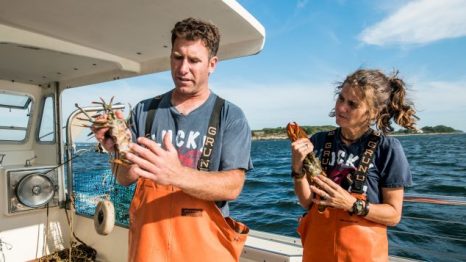
Educating the public – A lobster cruise: The luckiest catch in Maine
Captain Tom Martin turns the handle that draws up the lobster trap sitting on the ocean floor 45 feet below the surface to see what he can see. It’s a guessing game every time: Will it be big enough — but not too big — to keep? Will it be a pregnant female, which he can’t keep? “It’s easy to get hooked on it,” Martin says. “I’ve been doing this for 33 years, and I still enjoy going out to pick up the traps and seeing what’s inside. It’s like playing a slot machine — you never know what’s going come up in the trap.” Martin, the owner of Lucky Catch Cruises of out of Portland Maine, video, click here to read the story 13:54
NOAA Approves State Water Exemptions for Scallop Fisheries in Maine and Massachusetts
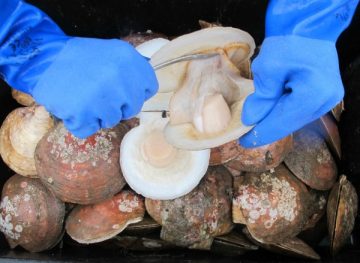 The State Waters Scallop Exemption Program allows federal permit holders to fish in the state waters scallop fishery on a more equitable basis where federal and state laws are inconsistent. The Program specifies that a state with a scallop fishery may be eligible for state waters exemptions from specific regulations if it has a scallop conservation program that does not jeopardize the objectives of the Atlantic Sea Scallop Fishery Management Plan. click here to read the press release 12:41
The State Waters Scallop Exemption Program allows federal permit holders to fish in the state waters scallop fishery on a more equitable basis where federal and state laws are inconsistent. The Program specifies that a state with a scallop fishery may be eligible for state waters exemptions from specific regulations if it has a scallop conservation program that does not jeopardize the objectives of the Atlantic Sea Scallop Fishery Management Plan. click here to read the press release 12:41
New record of whale strandings along coast
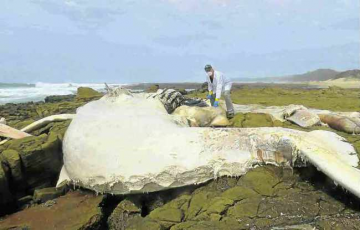 While East Londoners have been enjoying a bumper season of whale sightings over the past few weeks, a fourth humpback whale in less than a month has beached and died along the East London coastline. East London Museum principal scientist Kevin Cole said the strandings were a new record for his cetacean database. Yesterday, Cole examined the badly decomposed carcass of the fourth dead humpback on the rocks west of Chintsa West.,,, He said a number of factors could be responsible for the strandings including old age, pollution, ship strikes and the effects of seismic blasting to explore for gas and oil offshore. click here to read the story 11:34
While East Londoners have been enjoying a bumper season of whale sightings over the past few weeks, a fourth humpback whale in less than a month has beached and died along the East London coastline. East London Museum principal scientist Kevin Cole said the strandings were a new record for his cetacean database. Yesterday, Cole examined the badly decomposed carcass of the fourth dead humpback on the rocks west of Chintsa West.,,, He said a number of factors could be responsible for the strandings including old age, pollution, ship strikes and the effects of seismic blasting to explore for gas and oil offshore. click here to read the story 11:34
Pro-Brexit Scots fishermen fear Westminster ‘power grab’
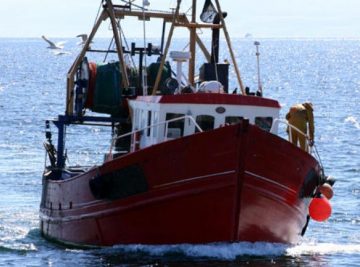 The pro-Brexit Scottish Fishermen’s Federation (SFF) has warned the UK Government’s legislation to leave the EU must be amended if Holyrood’s powers are to be respected. The call comes after the Scottish and Welsh devolved governments set out their proposal for 38 amendments to the European Union (Withdrawal) Bill to stop what they describe as a “power grab” by their counterparts in Westminster. Scotland’s devolved settlement was built upon the presumption that the UK would continuously be part of the EU. click here to read the story 10:45
The pro-Brexit Scottish Fishermen’s Federation (SFF) has warned the UK Government’s legislation to leave the EU must be amended if Holyrood’s powers are to be respected. The call comes after the Scottish and Welsh devolved governments set out their proposal for 38 amendments to the European Union (Withdrawal) Bill to stop what they describe as a “power grab” by their counterparts in Westminster. Scotland’s devolved settlement was built upon the presumption that the UK would continuously be part of the EU. click here to read the story 10:45
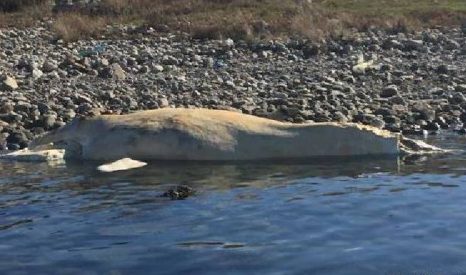
Another North Atlantic right whale found dead on Cape Cod
Yet another North Atlantic right whale carcass has been discovered, the sixteenth confirmed death of the endangered species this year. The International Fund for Animal Welfare says the carcass was found on Nashawena Island, south of Cape Cod in Massachusetts. The animal welfare organization says the carcass was “very decomposed,” but it is working alongside the U.S. National Oceanic and Atmospheric Administration to determine the cause of death. click here to read the story 09:47
California State legislators to meet in Eureka to discuss future of crab, salmon fisheries
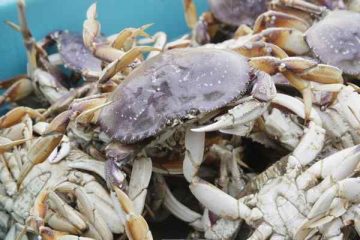 With the California crab season opener approaching and a poor salmon season winding down, a California legislative committee is set to meet in Eureka on Friday to discuss what the future holds for two of the North Coast’s most important fisheries. The Joint Committee on Fisheries and Aquaculture hearing is set to touch upon everything from whale entanglements in crab gear and the recent lawsuit filed related to them; the potential for a federal disaster declaration for California’s and Oregon’s 2017 salmon season; and crab fishing rules and recent test results on how toxic algae blooms are affecting crab this year. click here to read the story 09:02
With the California crab season opener approaching and a poor salmon season winding down, a California legislative committee is set to meet in Eureka on Friday to discuss what the future holds for two of the North Coast’s most important fisheries. The Joint Committee on Fisheries and Aquaculture hearing is set to touch upon everything from whale entanglements in crab gear and the recent lawsuit filed related to them; the potential for a federal disaster declaration for California’s and Oregon’s 2017 salmon season; and crab fishing rules and recent test results on how toxic algae blooms are affecting crab this year. click here to read the story 09:02
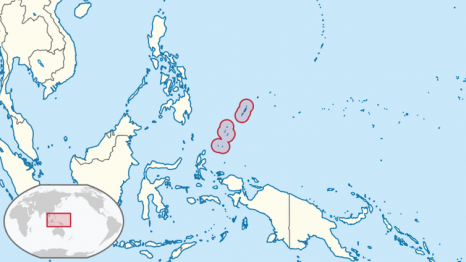
A huge marine reserve in the Pacific will protect rich tourists rather than fish
Palau is a sovereign state with a UN vote, albeit one with just 18,000 residents. In 2015 the country designated 80% of its territorial waters – an area roughly the size of Spain – as a National Marine Sanctuary. In the “Bul”, as the sanctuary is known locally, commercial fishing is off limits. The reserve has attracted many of the world’s largest conservation and development NGOs. It has received more than US$90m in pledges, mostly from corporate donors, charitable trusts and government agencies in Australia, Japan and the US. Yet the scientific rationale behind the sanctuary is questionable. click here to read the story 08:15
Cape Groups say Stop wiping out herring close to shore
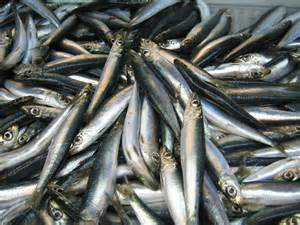 Herring loom large in the history of Cape Cod — it’s no coincidence that pretty much all of our towns have a “Herring River,” nor that one of the first public positions created in Colonial days was “herring warden,” charged with overseeing one of the community’s most important economic resources… In an effort to preserve the species, we have stopped people from scooping up so much as a single herring from our runs. Yet millions of river herring are killed just offshore and denied the chance to reproduce. It makes no sense.This is only one reason the Association to Preserve Cape Cod and the Cape Cod Commercial Fishermen’s Alliance have come together to call on federal regulators to create a buffer zone around the Cape to stop midwater herring trawling in our waters. click here to read the story 21:59:
Herring loom large in the history of Cape Cod — it’s no coincidence that pretty much all of our towns have a “Herring River,” nor that one of the first public positions created in Colonial days was “herring warden,” charged with overseeing one of the community’s most important economic resources… In an effort to preserve the species, we have stopped people from scooping up so much as a single herring from our runs. Yet millions of river herring are killed just offshore and denied the chance to reproduce. It makes no sense.This is only one reason the Association to Preserve Cape Cod and the Cape Cod Commercial Fishermen’s Alliance have come together to call on federal regulators to create a buffer zone around the Cape to stop midwater herring trawling in our waters. click here to read the story 21:59:
Coast Guard, partner agencies search for missing fisherman in the Gulf
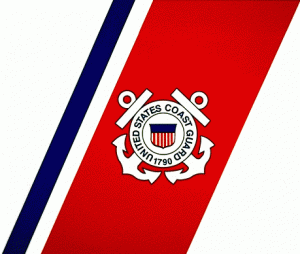 The Coast Guard is searching for a missing man who was last seen aboard a fishing vessel approximately 37 miles southwest of Morgan City, Louisiana, at approximately 10:30 p.m. Sunday. The missing man is reported to be Vietnamese and wearing a t-shirt and sweat pants. The vessel identified through inquiry is F/V Miss Quinh Chi II. Watchstanders at Coast Guard Sector New Orleans received the report of the missing person at approximately 11:30 p.m. and directed the launch of Coast Guard Cutter Skipjack, an MH-65 Dolphin helicopter crew from Coast Guard Air Station New Orleans, and an HC-144 Ocean Sentry airplane crew from Coast Guard Aviation Training Center Mobile to search for the man. Marine units from Louisiana Department of Wildlife and Fisheries and Iberia Parish Sheriff’s Office are also on scene searching for the man. –USCG– 15:34
The Coast Guard is searching for a missing man who was last seen aboard a fishing vessel approximately 37 miles southwest of Morgan City, Louisiana, at approximately 10:30 p.m. Sunday. The missing man is reported to be Vietnamese and wearing a t-shirt and sweat pants. The vessel identified through inquiry is F/V Miss Quinh Chi II. Watchstanders at Coast Guard Sector New Orleans received the report of the missing person at approximately 11:30 p.m. and directed the launch of Coast Guard Cutter Skipjack, an MH-65 Dolphin helicopter crew from Coast Guard Air Station New Orleans, and an HC-144 Ocean Sentry airplane crew from Coast Guard Aviation Training Center Mobile to search for the man. Marine units from Louisiana Department of Wildlife and Fisheries and Iberia Parish Sheriff’s Office are also on scene searching for the man. –USCG– 15:34
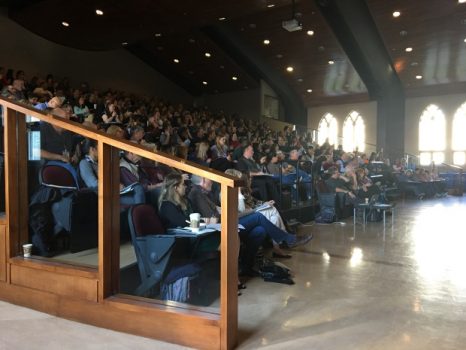
North Atlantic Right Whale Consortium – scientists say Right whales could be 20 years away from certain extinction
Scientists at an annual meeting for North Atlantic right whales estimate the species has a little over two decades left to survive unless changes are made immediately. The North Atlantic Right Whale Consortium’s annual meeting was held in Halifax on Sunday, and all of the scientists spoke with a sense of urgency about the fate of these whales. This summer, at least 15 right whales died in Canadian and U.S. waters and scientists at the conference stressed that human activity is the primary cause of death for all right whales. click here to read the story 11:21
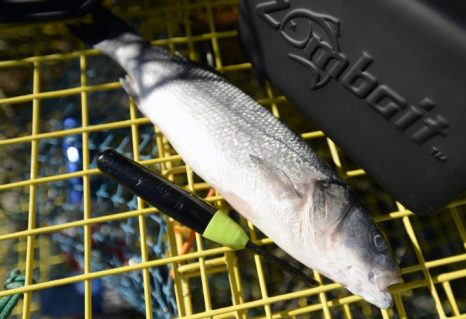
Zombait! Maine inventor’s device puts the wiggle back in dead bait fish
The product, appropriately named Zombait, is a hinged tube with a battery-powered motor inside that can be stuffed down the throat of dead bait to make it wiggle back and forth, simulating the swimming motion of a live fish. The idea is to trick big fish into thinking they’re going after live prey. Zombait is the brain child of entrepreneur and veteran tuna fisherman Rink Varian, who lives in Phippsburg. Varian dreamed up the idea for a lure that reanimates dead bait during a slow day of bluefin tuna fishing, which he attributed to a lack of live mackerel on his boat. He wondered if there might be a way to bring those dead mackerel “back to life.” click here to read the story 08:26
Little hope in latest evaluations of codfish – NEFMC SSC Meeting, October 23-24, 2017, Live Streaming Information
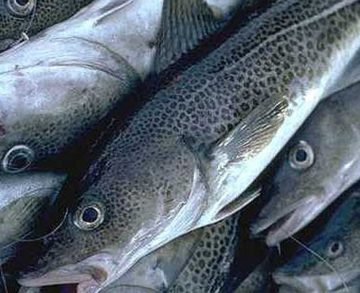 The completed operational assessments to help determine 2018-2020 groundfish quotas do not appear to be any more optimistic about the state of Gulf of Maine cod than those that effectively shuttered the fishery in the fall of 2014. The New England Fishery Management Council’s science and statistical committee is set to meet Monday and Tuesday in Boston to review the assessments for 19 groundfish species and finalize its catch recommendations to the full council. click here to read the story 07:31
The completed operational assessments to help determine 2018-2020 groundfish quotas do not appear to be any more optimistic about the state of Gulf of Maine cod than those that effectively shuttered the fishery in the fall of 2014. The New England Fishery Management Council’s science and statistical committee is set to meet Monday and Tuesday in Boston to review the assessments for 19 groundfish species and finalize its catch recommendations to the full council. click here to read the story 07:31
NEFMC SSC Meeting, October 23-24, 2017, Live Streaming Information – Meeting materials (click here) Online access to the meeting (click here)
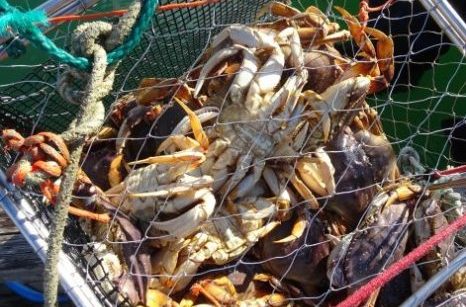
B.C. crab and prawn fishermen dispute Port of Vancouver no-go zones – will force them from where they’ve long fished
Crab fisherman Stewart McDonald is steaming mad that he may soon be prevented by the Port of Vancouver from dropping crab traps around Vancouver’s Burrard Inlet, where he’s fished for more than two decades.,, On Friday, the Port of Vancouver, Canada’s largest port, confirmed it has made changes to its information guide, which provides rules for where vessels — like McDonald’s fishing boat — can travel. A port spokesman said the changes were needed because the waters were getting crowded with recreational boaters. click here to read the story 12:26
F/V Dianne – Four fishermen still missing after second day of police searches
 Police divers have been unable to find any of the four missing crew members after a second day scouring sunken fishing trawler Dianne off the central Queensland coast. Gladstone Patrol Inspector Darren Somerville said divers cleared the vessel and its immediate surroundings of debris but could not find any find any sign of the four fishermen. “Obviously the timeframe for survival expired some time ago, and that timeframe was whether they were in the vessel or even if they were in the water,” he said. click here to read the story 12:03
Police divers have been unable to find any of the four missing crew members after a second day scouring sunken fishing trawler Dianne off the central Queensland coast. Gladstone Patrol Inspector Darren Somerville said divers cleared the vessel and its immediate surroundings of debris but could not find any find any sign of the four fishermen. “Obviously the timeframe for survival expired some time ago, and that timeframe was whether they were in the vessel or even if they were in the water,” he said. click here to read the story 12:03
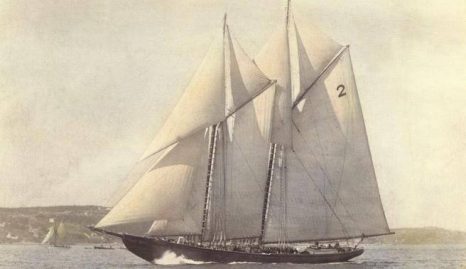
A fishing schooner called the Bluenose and Nova Scotian identity
A fishing and racing schooner is the most instantly recognizable public symbol of Nova Scotia. The Bluenose, it seems, is almost everywhere — from the Canadian dime to our licence plates and from beer label to tourist souvenirs. It remains as ubiquitous in Nova Scotia as the lighthouses on our shores and Sobeys and Tim Hortons in our towns and cities. Dubbed by admirers as “Queen of the North Atlantic,” she served as a working vessel, achieved fame as the fastest fishing schooner, and was wrecked at sea in 1946. She lived on as a symbol on the Canadian 10-cent piece and was commemorated by a replica, Bluenose II, built in 1963, and then reconstructed, through an arduous process, 40 years later. click here to read the story 11:20
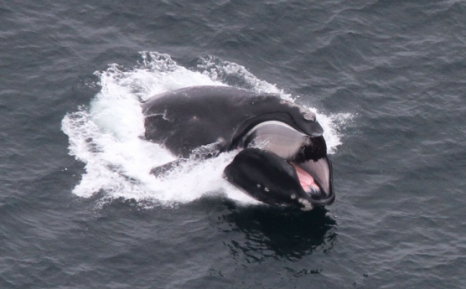
Whale scholars, lobstermen, conservationists and government officials converge in Halifax – Right whale deaths called ‘apocalyptic’
The focus of this year’s annual meeting of North Atlantic right whale researchers has been altered in light of 15 of the critically endangered marine mammals being found dead this year in waters off eastern Canada and the U.S. The North Atlantic Right Whale Consortium said the goal of this year’s meeting is to explain the science behind the “mortality crisis” to members of government who will be there. The consortium also said the purpose of this year’s meeting is to form an international working group to look at the big picture when it comes to right whales, instead of managing problems region by region. click here to read the story
Right whale deaths called ‘apocalyptic – Whale scholars, lobstermen, conservationists and government officials converge today in Nova Scotia to save right whales. Among the commercial lobstermen at the right whale symposium today is John Haviland, of the South Shore Lobster Fishermen’s Association,,, click here to read the story 09:12
DFO’s Inaugural Citizen Science Cod Project – creates cod assessment data, community involvement
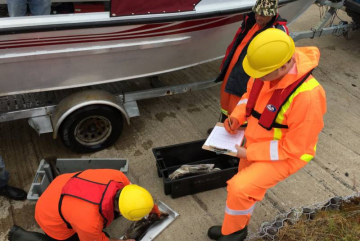 Notwithstanding a car that perpetually reeked of fish, Madelyn Swackhamer is singing the praises of her summer job. The 17-year-old from Bareneed, Conception Bay North, was one of 40 high school students hired by the Department of Fisheries and Oceans (DFO) for its inaugural Citizen Science Cod Project.,, The pilot project involved having pairs of students located at 20 landing wharves in communities on the Northeast Avalon, Conception Bay, Trinity Bay, Bonavista Bay and Notre Dame Bay throughout the course of the province’s summer and fall recreational food fisheries. The students were charged with recording data on how many fish are being caught, the length of each fish, and the arrival and departure of participating vessels. click here to read the story 22:06
Notwithstanding a car that perpetually reeked of fish, Madelyn Swackhamer is singing the praises of her summer job. The 17-year-old from Bareneed, Conception Bay North, was one of 40 high school students hired by the Department of Fisheries and Oceans (DFO) for its inaugural Citizen Science Cod Project.,, The pilot project involved having pairs of students located at 20 landing wharves in communities on the Northeast Avalon, Conception Bay, Trinity Bay, Bonavista Bay and Notre Dame Bay throughout the course of the province’s summer and fall recreational food fisheries. The students were charged with recording data on how many fish are being caught, the length of each fish, and the arrival and departure of participating vessels. click here to read the story 22:06
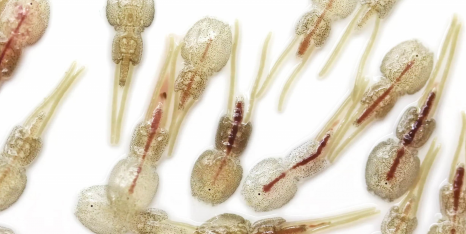
Why ‘normal’ salmon don’t get as many parasites
New research reveals the inherent ability of salmon to avoid infection through their first line of defense—behavior. In the rapidly growing fish-farming industry, parasite outbreaks cause production inefficiencies, poor welfare for billions of fish, and negative consequences for wild populations when diseases spread. “Parasite outbreaks in wild fish have been induced by farmed fish in major farming systems, such as sea lice infestations on wild salmon in Europe and North America,” says Tim Dempster, associate professor in the School of BioSciences at the University of Melbourne. click here to read the story 15:25
NEFMC commitee votes to protect corals in Gulf of Maine
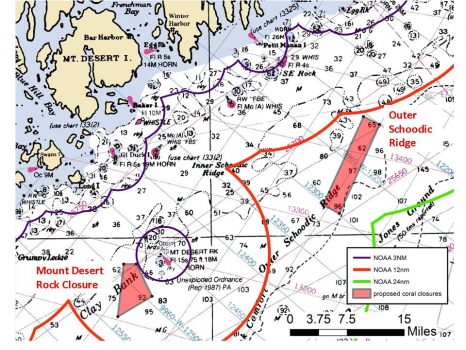 Federal regulars have decided to protect two areas in the Gulf of Maine that are home to slow-growing corals. The protected areas encompass almost 40 square miles and are called Outer Schoodic Ridge and Mt. Desert Rock. The areas would still be open to lobster fishing but not to bottom trawling. A committee of the New England Fishery Management Council voted on the protections on Thursday. click here to read the story 14:43
Federal regulars have decided to protect two areas in the Gulf of Maine that are home to slow-growing corals. The protected areas encompass almost 40 square miles and are called Outer Schoodic Ridge and Mt. Desert Rock. The areas would still be open to lobster fishing but not to bottom trawling. A committee of the New England Fishery Management Council voted on the protections on Thursday. click here to read the story 14:43
F/V Pacific Paradise: Responders unsuccessful in removing grounded fishing vessel off Honolulu
 Responders were unsuccessful in removing the grounded 79-foot fishing vessel Pacific Paradise off Waikiki, Friday. Marine salvage company Cates International crews utilized a tug with 8” plasma towline and chain from both the bow and stern of the fishing vessel in the attempt to break it free from the coral reef. “Salvage teams attempted various removal procedures on both on the bow and stern and although the vessel had movement during the process, it remains aground,” said Capt. Michael Long, commander, Coast Guard Sector Honolulu and captain of the port. “Our Coast Guard teams will reassess with all our partners this weekend to prepare future removal plans. click here to read the story 14:00
Responders were unsuccessful in removing the grounded 79-foot fishing vessel Pacific Paradise off Waikiki, Friday. Marine salvage company Cates International crews utilized a tug with 8” plasma towline and chain from both the bow and stern of the fishing vessel in the attempt to break it free from the coral reef. “Salvage teams attempted various removal procedures on both on the bow and stern and although the vessel had movement during the process, it remains aground,” said Capt. Michael Long, commander, Coast Guard Sector Honolulu and captain of the port. “Our Coast Guard teams will reassess with all our partners this weekend to prepare future removal plans. click here to read the story 14:00
Fishery Reform Post Brexit -New technology may allow regulation by effort rather than quotas
 Among the few certainties of Brexit, one is that we will need a new, bespoke, British fisheries policy. The prime minister has confirmed that we will be leaving the Common Fisheries Policy. The fishing industry, though a small part of the economy, is highly symbolic, having been cheaply betrayed on entry into the European Union, when we donated to our EU partners the chance to fish a vast sea area. On leaving, Britain will control not only its 12-mile territorial waters, but also its 200-mile exclusive economic zone. This is a golden opportunity to learn from the management of fisheries around the world and design a system of exploiting our fish that is sustainable, conservationist and profitable. ITQ? or Days at Sea? click here to read the story 12:18
Among the few certainties of Brexit, one is that we will need a new, bespoke, British fisheries policy. The prime minister has confirmed that we will be leaving the Common Fisheries Policy. The fishing industry, though a small part of the economy, is highly symbolic, having been cheaply betrayed on entry into the European Union, when we donated to our EU partners the chance to fish a vast sea area. On leaving, Britain will control not only its 12-mile territorial waters, but also its 200-mile exclusive economic zone. This is a golden opportunity to learn from the management of fisheries around the world and design a system of exploiting our fish that is sustainable, conservationist and profitable. ITQ? or Days at Sea? click here to read the story 12:18






